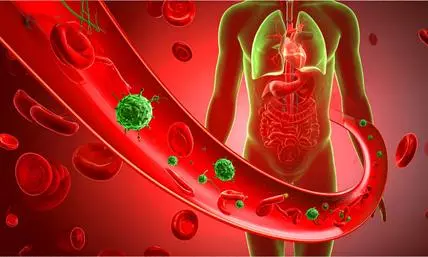
NIT Calicut scientists develop portable nano-sensor for quick detection of deadly sepsis
text_fieldsKozhikode: Scientists at the National Institute of Technology (NIT) Calicut have developed a new low-cost, portable electrochemical biosensor capable of quickly detecting sepsis, a life-threatening condition caused by severe infection. The device promises faster diagnosis and improved patient outcomes by identifying the presence of endotoxins, key indicators of sepsis, within minutes.
Sepsis occurs when the body’s response to infection causes widespread inflammation, potentially leading to organ failure and death. Early detection is critical for timely treatment and reducing mortality.
Led by Professor N. Sandhyarani, the NIT Calicut research team developed eight sensor platforms, seven using electrochemical detection and one using optical detection, to identify endotoxins, which are toxic components from the outer membrane of Gram-negative bacteria.
In findings published in the journal Langmuir, the researchers highlighted a highly sensitive electrochemical sensor chip designed for the selective detection of lipopolysaccharide (LPS), a major endotoxin. The chip is compatible with a portable analyzer, making it suitable for point-of-care and on-site testing.
The sensors demonstrated high selectivity, successfully detecting endotoxins in the presence of other interfering substances. The team tested their accuracy using pharmaceutical insulin, fruit juices, and whole blood samples. In each case, endotoxin recovery was achieved with less than 2 per cent error.
Additionally, two of the electrochemical platforms proved capable of detecting E. coli, a common Gram-negative bacterium, in water samples. The results were comparable to conventional biological methods but delivered much faster, showcasing the sensors' potential for environmental monitoring.
The team’s prototype device was able to detect endotoxins in blood serum using the standard addition method and delivered results in under 10 minutes, offering a promising tool for early sepsis diagnosis at the point of care.












